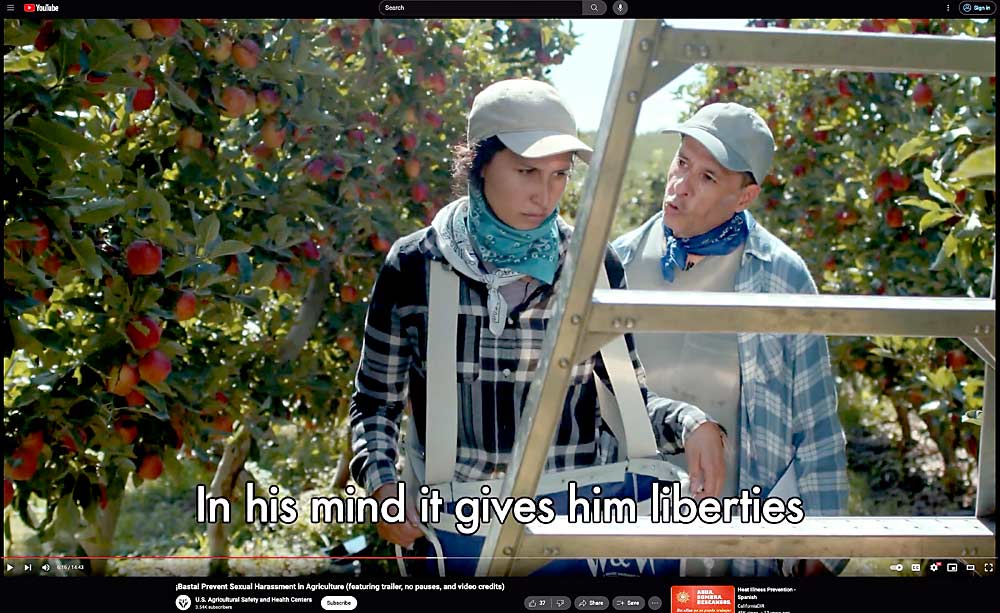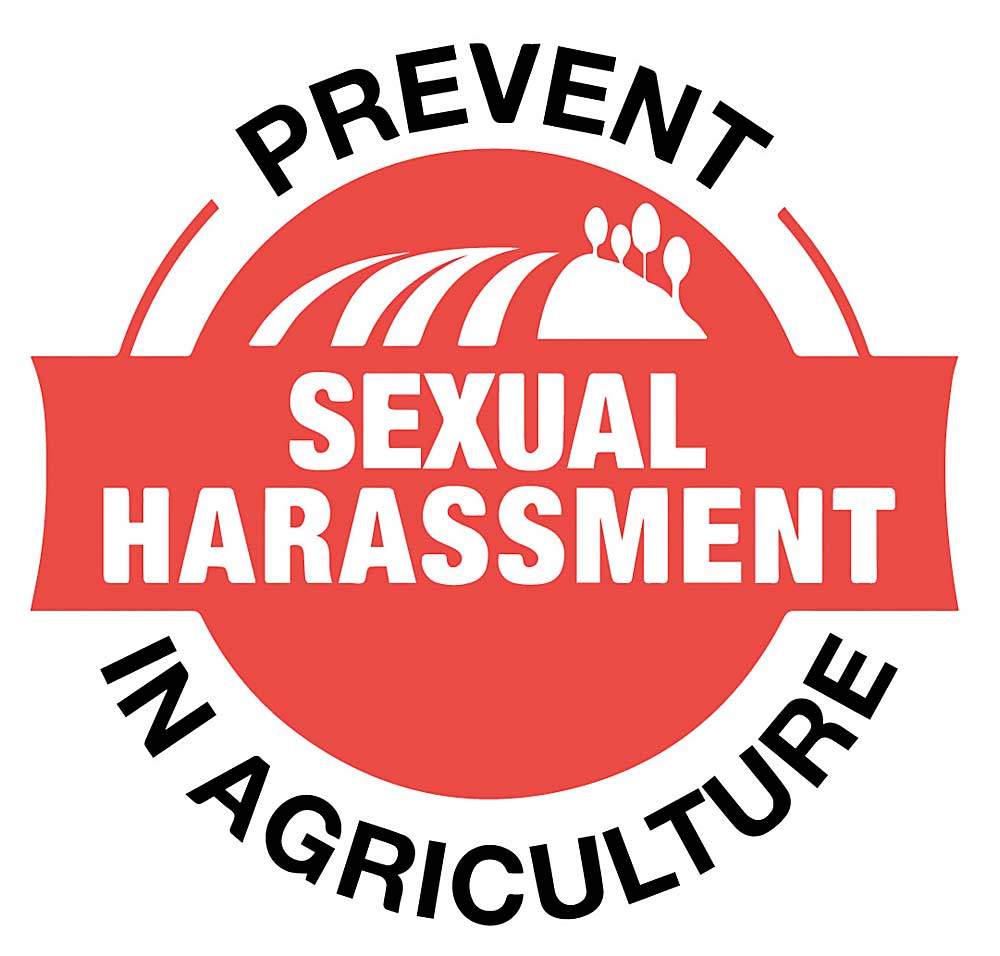—story by Ross Courtney

Agricultural employment groups are making a new push this spring for companies to use a training curriculum designed to prevent sexual harassment in Washington’s specialty crops.
It’s called “¡Basta! Prevent Sexual Harassment in Agriculture.” (“¡Basta!” is Spanish for “Enough!”)
The curriculum, with resources available in English and Spanish, features dramatized videos set amid the orchards, ladders and bins that Washington’s farmworkers and supervisors will recognize.

The kit, which also includes training guides and model policies, was released in 2019 by the University of Washington Pacific Northwest Agricultural Safety and Health — or PNASH — Center. This spring, PNASH granted $7,500 to an ag employer association to help spread the word.
“We want to make it more of a supported activity in the industry,” said Michael Gempler, executive director of the Washington Growers League, a Yakima-based ag employment nonprofit.
He envisions distributing hundreds of thumb drives to farms all over the state.
Gempler also hopes to encourage employers already using the training to use it regularly. The topic needs to be addressed more than once, he said.
“Changing human behavior is hard,” he said.
The new funding also will pay for additional content, specifically a new “train-the-trainer” video and another about liability and legal rights and responsibilities, said Jody Early, a UW professor of nursing and health studies and the principal investigator for ¡Basta!
The curriculum development was fueled by the #MeToo movement, Early said, as well as some sexual harassment investigations led by the Equal Employment Opportunity Commission at Central Washington fruit companies in the early 2010s. A few dozen companies and organizations — and most importantly, workers themselves — helped put it together.
“Farmworkers were calling for this from the beginning,” Early said.
The Kershaw Cos., based in Yakima, have been using the training curriculum for a few years, said Chafeka Abdellatif, director of human resources.
The setting and language of the videos help a “touchy subject” resonate with orchard employees who sometimes work far away from the main office, Abdellatif said.
“It’s a great tool for the industry to utilize,” she said. “It’s important that sexual harassment is addressed.”
To order a free ¡Basta! training kit from PNASH, visit: deohs.washington.edu/pnash/basta-toolkit. •








Leave A Comment